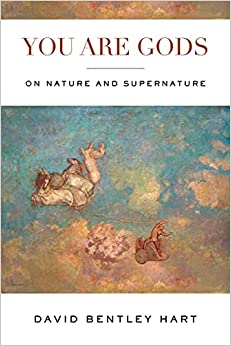
Ancient Anglican
A Modern Perspective on Early Christian Thought.
New on the Blog
The Way of Love: Bless and How to be a Blessing
Being a blessing simply means loving others as best we can. It requires actively listening to others, intuiting their needs, and serving them in whatever way we can.
You Are Gods – Waking the Gods, part 2
We are finite and contingent beings. Everything ‘natural’ about us is dependant upon some other source of power not only for its realization but for its very existence.
The Way of Love: How to Worship
Deliver us, when we draw near to you, for coldness of heart and wanderings of mind, that with steadfast thoughts and kindled affections, we may worship you in spirit and truth.
You Are Gods – Waking the Gods, part 1
If the divine nature is extrinsically imposed us, then within that imposition we cease to exist. What does God accomplish by “saving us” or giving us a divine nature if within that gift, we cease to be who we are?
You Are Gods – Brief Introduction
The book is a collection of six essays where Hart dispels the understanding that orthodox Christianity teaches (or can teach) a two-tier understanding of nature and supernature. Rather, Christianity teaches that nature/supernature or nature/grace are indivisible.
The Way of Love: Worship
In worship, we move God into the center of our world, and us out of it, thereby fulfilling the greatest of the commandments.
The Way of Love: How to Pray Daily
In any discussions about prayer, the question arises about how do we learn to pray. How can we make prayer part of daily life? Rev. Gunn gives us several areas in which we can learn to pray daily.
The Way of Love: Pray
“Rejoice always, pray constantly, give thanks in all circumstances.” 1 Thess. 5:16-18.
The Way of Love: How to Learn
Rev. Gunn gives us four areas in which we can learn: Bible Reading, Daily Devotionals, Joining a Class, and Reading Books.
The Way of Love: Learn
“Scripture is like a river again, broad and deep, shallow enough here for the lamb to go wading, but deep enough there for the elephant to swim.” We can never quit learning.
The Way of Love: How to Turn
We do not turn to earn God’s love but we turn in order to give thanks and enjoy God’s vast love for us. As John writes, we love others because God first loved us. 1 John 4:19.
The Way of Love: Turn
The first step in developing a Christian life is simply turning. We need to turn toward God and away from self-centeredness.


